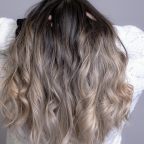
Your Guide to Autumn and Winter Skincare That Actually Works
When the temperature drops, your skincare routine shouldn't have to suffer. Yet many of us find ourselves battling dry patches, irritated skin, and that dreaded dull complexion that seems to appear the moment autumn arrives.
The good news? With the right approach and a few strategic tweaks, you can maintain healthy, glowing skin throughout the colder months. From tackling common winter skin concerns to exploring professional treatments that deliver real results, here's everything you need to keep your complexion looking its best when the weather turns chilly.
Winter's Harsh Reality: Common Skin Challenges
The shift from warmer to cooler weather brings a unique set of skin concerns that can leave even the most dedicated skincare enthusiasts feeling frustrated.
Combating Dry Skin
Cold outdoor air combined with heated indoor environments creates the perfect storm for dehydrated skin. Your skin's natural moisture barrier becomes compromised, leading to tightness, flaking, and an uncomfortable feeling that no amount of regular moisturiser seems to fix.
Switch to a richer, more emollient moisturiser as soon as temperatures begin to drop. Look for products containing ceramides, which help repair your skin's protective barrier, and apply whilst your skin is still slightly damp to lock in maximum hydration. A bedroom humidifier can also work wonders for maintaining optimal skin moisture levels overnight.
Managing Eczema and Psoriasis Flare-ups
For those dealing with eczema or psoriasis, autumn and winter can feel particularly challenging. The combination of dry air, temperature fluctuations, and potential stress from seasonal changes often triggers uncomfortable flare-ups.
Gentle consistency is key. Opt for fragrance-free, hypoallergenic products and resist the urge to over-exfoliate, which can worsen inflammation. Oatmeal-based cleansers provide natural anti-inflammatory benefits, whilst moisturisers containing colloidal oatmeal or niacinamide can offer significant relief. Don't hesitate to consult a dermatologist if over-the-counter options aren't providing adequate relief.
Addressing Dullness and Uneven Texture
Shorter days and less natural light can leave your complexion looking lacklustre. Add in the effects of central heating and you've got a recipe for skin that feels rough and appears tired.
Gentle exfoliation becomes crucial during these months. Chemical exfoliants like glycolic or lactic acid used 2-3 times weekly can help maintain healthy cell turnover without over-stripping your skin. Follow up with a nourishing serum containing hyaluronic acid to plump and hydrate.
Professional Treatments for Enhanced Radiance
Sometimes even the most dedicated at-home routine needs professional reinforcement. Advanced treatments can provide the boost your skin needs to maintain its glow throughout the darker months.
Skin Boosters: Deep Hydration Where It Counts
Skin boosters represent a game-changing approach to maintaining skin hydration from within. These injectable treatments deliver hyaluronic acid and other nourishing ingredients directly into the dermis, providing hydration that no topical product can match.
Unlike traditional dermal fillers that add volume, skin boosters focus on improving overall skin quality, texture, and luminosity. Most patients notice improvements in skin texture and radiance within a few weeks, with results typically lasting several months. This makes them particularly valuable during the harsh winter months when skin needs extra support.
Dermal Fillers: Strategic Enhancement
When administered by skilled professionals, dermal fillers can restore volume lost to seasonal dehydration whilst smoothing fine lines that become more pronounced in colder weather. The key lies in finding a qualified practitioner who understands facial anatomy and aesthetic balance.
The Importance of Choosing the Right Practitioner
Your practitioner's choice of supplier makes all the difference in both safety and results. Reputable clinics buy dermal fillers such as Restylane from established, regulated manufacturers with proven safety records. Always ask about the specific products being used and don't hesitate to research the brand beforehand.
A qualified practitioner will take time to understand your goals and create a treatment plan that enhances your natural features rather than dramatically altering them. Red flags include practitioners who can't provide proper certifications, offer suspiciously low prices, or pressure you into multiple treatments immediately.
Building Your Cold-Weather Skincare Arsenal
Creating an effective autumn and winter skincare routine requires more than just swapping to a heavier moisturiser. Consider these essential strategies:
Sun Protection Remains Non-Negotiable
UV rays don't disappear just because it's cloudy or cold. Make broad-spectrum SPF 30 or higher your daily essential, regardless of the season. Winter sun reflecting off snow can be particularly harsh, making protection even more critical.
Layer Your Hydration
Think of your skincare routine like dressing for cold weather; layering is key. Start with a hydrating toner, add a serum with ingredients like hyaluronic acid or niacinamide, then seal everything in with a rich moisturiser. This approach ensures maximum hydration retention.
Don't Forget Your Body
Facial skin isn't the only area that suffers during colder months. Invest in a good body oil or rich body cream, and apply immediately after showering whilst your skin is still damp. Pay particular attention to commonly dry areas like elbows, knees, and heels.
Simple Solutions That Make a Real Difference
Sometimes the most effective skincare solutions are also the simplest. Consider these practical approaches:
Take shorter, cooler showers to prevent further moisture loss. Use gentle, soap-free cleansers that won't strip your skin's natural oils. Keep a travel-sized hand cream in your bag for on-the-go moisture top-ups.
Indoor air quality matters too. If possible, keep indoor temperatures moderate and consider adding plants to naturally increase humidity levels in your living spaces.
Your Path to Winter-Proof Skin
Maintaining healthy, radiant skin through autumn and winter doesn't require a complete skincare overhaul, it simply requires thoughtful adjustments and consistent care. Whether you're addressing specific concerns like eczema and psoriasis or looking to enhance your natural glow with professional treatments, the key is finding what works for your unique skin type and lifestyle.
Remember, great skin is about consistency rather than perfection. Start with addressing your most pressing concerns, build a routine you can maintain, and don't be afraid to seek professional guidance when needed. Your skin will thank you for the extra attention when spring arrives.













